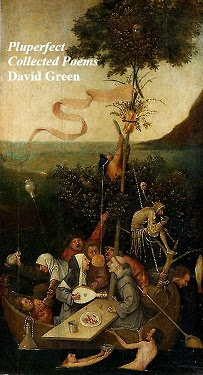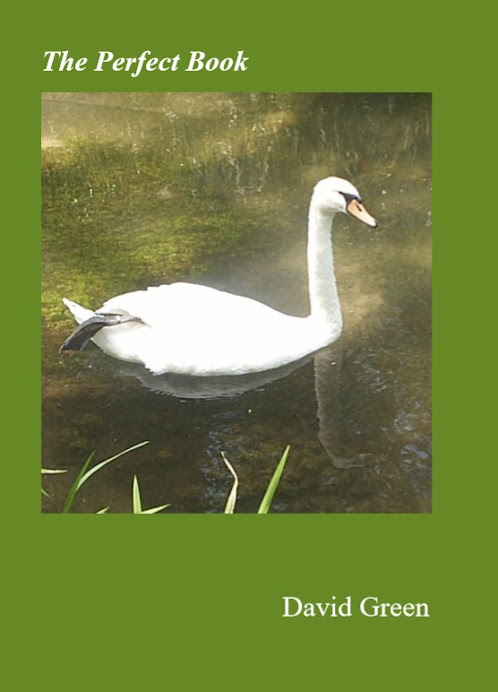The world seems to have been wobbling on a precipice for months now, the global financial meltdown that is just about to happen and has been just about to happen for what is beginning to feel like forever. If you've got a job you're still okay and if your retirement is tidily all wrapped up then no worries but once the whole edifice of world capitalism collapses, then who can say.
Capitalism depends on boom and bust, the regular clear out of failed efforts. It is fuelled by borrowing and debt but they are supposed to last forever except they need to. But the new angle now is that it's China that has all the money. We didn't see that one coming.
It couldn't have been only me that knew that Greece wouldn't meet the repayments on its bail out and yet the markets went into a further tailspin when they realized it wouldn't. I only wish I understood it all well enough to have bet on that. Those in Britain who argued that we should stay out of the Euro were mostly right for the wrong reasons. It wasn't because we fought wars to keep the Queen's head on our currency and don't want our money to be the same as what they use in Italy. But it was a sound decision anyway.
The Conservative argument, under George Osborne, who looks like he clearly can't comprehend what it's like to not be a millionaire, was that the entrepreneureal spirit will create enough jobs to take up all the public service redundancies. But it's not a matter of if or when, it's simply not going to happen. They are as flotsam and jetsam blown about on the tides of world trends and there's nothing they can do about it. His job is just to defend the well off against the inevitable for as long as he can. The permanent look of bemusement on his face is just as worrying as Blair's old Bambi impersonation ever was.
The trouble is that there's no such thing as Economics. It ought to be abolished as a University subject and put into that dubious range of issues like Astrology, Palmistry, Creative Writing or Origami. Economics is no more than getting oneself down to the dog track and sticking it all on trap one except, of course, our dog track in Portsmouth closed some time ago now.
So, let's see if we can't fiddle our way ahead of the withdrawing tide by having a feature called the Saturday nap in which I'll scrutinize the horse racing of a Saturday morning and look where we might put our precious cash. The tip will be posted here by lunchtime and if we're not doing okay by Christmas, we'll admit defeat. The first half of the jumping season is often a good time to bet in my experience and I wish we'd started last week when Ongenstown Lad strolled in at Cheltenham at 5/2. I'm looking at Camelot on the flat at Doncaster tomorrow, who has been well backed in the week, but we'll see about that in the morning.
-But, Sport, otherwise. Who'd have it. Wales were denied their place as beaten finalists in the Rugby World Cup when their captain tried to drill an opponent head first into the ground and, although to much disgruntlement, quite rightly so. Rugby doesn't seem to have many rules and fails as a game because you can't really make up rules for a boisterous scrap between burly, beery men. But then last night, Fulham's prospects of getting through their Europa Cup group were left largely unaffected by the sending off of Dembele who no more than pushed a provactive opponent on the shoulder, who then collapsed as if he'd been shot. So I'm not sure if Rugby's a game played by real men and football by overpaid poseurs but I think the biggest problem with sport might be taking it seriously and the only way to make it matter, if you need it to, is to bet on it.
-Still looking through Lumsden's
Best Poetry of 2011 anthology, I'm taking note of Judy Brown's fine poem in there and have ordered her forthcoming collection
Loudness. I have high hopes of it on the early evidence and the poetry year is by no means over yet.
-Whereas, somewhat more controversially, I found myself calling last week's reading at Cheltenham a 'Premiership' event and so wondered exactly which twenty British poets would constitute the Premiership. There's no point allowing lazy journalism that says things like ' Smith is one of the top such and such in Britain' unless the writer can say who else is and who in fact isn't. So, one ought to be able to name the Premiership poets. The shortlist extends to maybe 80, which I have in three divisions. 18 so far in the Premiership with a Women's league for the benefit of those who think that Women's poetry is a different field altogether (which I really can't see). I don't know whether to publish my eventual findings here and would welcome nominations. One finds oneself pondering whether Jo Shapcott is Premiership; is Glyn Maxwell top of the next division or whether Craig Raine is now Sheffield Wednesday. It's bound to be wrong but wrong in different ways to everyone who thinks so but it is based on a list I saw, compiled decades ago, by an academic who had counted up the lineage of coverage that poets had been allocated in critical journals and suchlike. Heaney was top and Hughes second. My list, if I ever summon the nerve to publish it, is nowhere near as scientific but is my attempt at judging what the world thinks, or those who have any inclination to be interested. It won't be my top 20. I could make that up any time you like. Surely there's more to enjoy about it than making league tables but I've never grown out of the boyish infatuation with a list, you see.
- Meanwhile, this house is patiently waiting for the arrival of the new Murakami. In some ways, I hope it never comes. Long books are daunting. I read the whole of
The Gulag Archipelago, and all of Solzhenitsyn to date, in my teens. I sat in front of
Middlemarch and tried to let it pass into me by some sort of osmosis one University summer and reached roughly page 1300 of Proust in my twenties until the bookmark stalled at the place it has remained ever since.
But, Murakami is the Nobel laureate in waiting, a worldwide cult I was trapped into by his easy way of making you think it's fine to crack open a casual beer, talk to a cat and apparently walk into a painting and find yourself involved in something you don't really understand. But if I don't review any more novels this year on here, you'll know why.




















